In mid-Aug, the National Development and Reform Commission issued a notice entitled "The completion of the double control targets for energy consumption in the first half of 2021 by region" and requested that from the date of issuance of this notice, the energy-saving review of projects with high energy consumption and high emission (except major projects planned and laid out by the China government) will be suspended in 2021 for regions (prefecture-level cities, states and leagues) where energy consumption intensity does not decrease but increases. Pressed by the control target of total energy consumption and energy consumption intensity, so called“Double Control”, provinces that missed the target bound to take measures. The influence on spandex and downstream fabric manufacturing market was analyzed below:
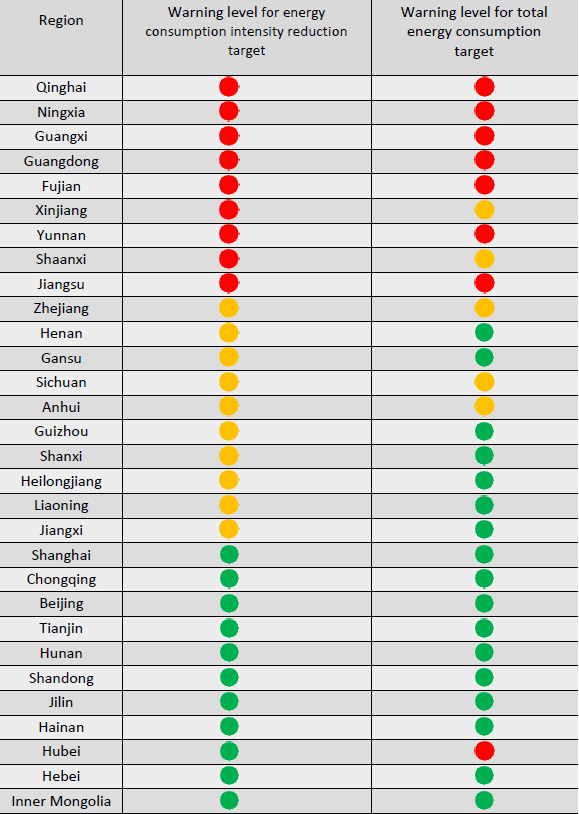
Note: 1. The data of Tibet has been acquired and it not included in the early warning range. The ranking is based on the reduction rate of energy consumption intensity in each region.
2. Red is level 1 warning, indicating that the situation is quite severe and the double control progress target has not been achieved, with gap between the actual value and the target value at more than 10%.Orange is level 2 warning, indicating that the situation is relatively severe and the double control progress target has not been achieved, with gap between the actual value and the target value at lower than 10%. Green is level 3 warning, indicating generally smooth progress.
The influence on the operating rate of spandex industry
Zhejiang, Jiangsu, Guangdong and Shandong were major spandex production bases in China. Among these, Guangdong and Jiangsu missed the energy consumption intensity reduction target and the total energy consumption target. Energy consumption control exerted stronger influence on the market in Zhejiang after the Mid-Autumn Festival.
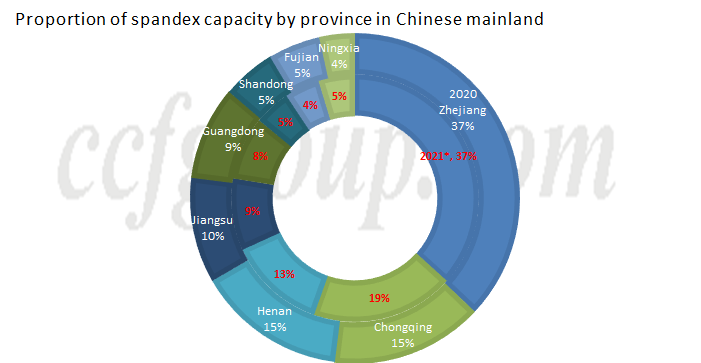
The operating rate of spandex plants declined to 95% now from 97% in end-Aug. The“Double Control”apparently impacted the operation of spandex units in the first half of Sep in Guangdong and Jiangsu while the influence on Zhejiang strengthened from late-Sep.
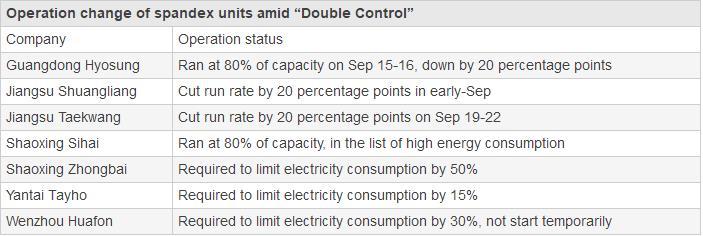
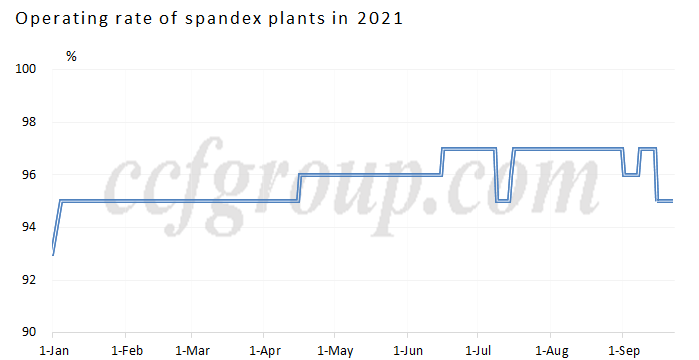
The impact on downstream run rate
The operating rate of downstream fabric mills started decreasing obviously from late-Jul with scarce orders and tended to fall. Fabric mills ran at historic high run rate during the same period of last year driven by the orders transferred from abroad and kept running at high capacity in Jan-Jul, 2021 as some export orders were placed in advance amid high sea freight and tight containers. Emerging markets were recovering from the pandemic. Some orders were transferred to some markets with lower cost.
Current operating rate of circular knitting plants was low with limited orders. High-density knitting machine rose apparently in recent 2 years due to hot demand for yoga and sports. Downstream plants were cautious in hoarding up stocks when downstream capacity expanded unorderly and spandex price kept high, resulting into obviously reducing run rate. The operating rate of circular knitting plants dropped to 30-40% in mid-Sep from 70% in early-Jul in Chaozhou and Shantou from Guangdong province, that of high-density knitted machine slipped to 40-50% in early-Sep from 70% and that of circular knitting machine also dipped apparently to 30% in Foshan, Guangdong amid high stocks of cotton/spandex products. More dyeing plants scaled down production in Zhejiang during the Mid-Autumn Festival. Coupled with higher stocks in circular knitting plants, rising price of fabric dyeing and the order schedule, the run rate of circular knitting plants may be impacted.
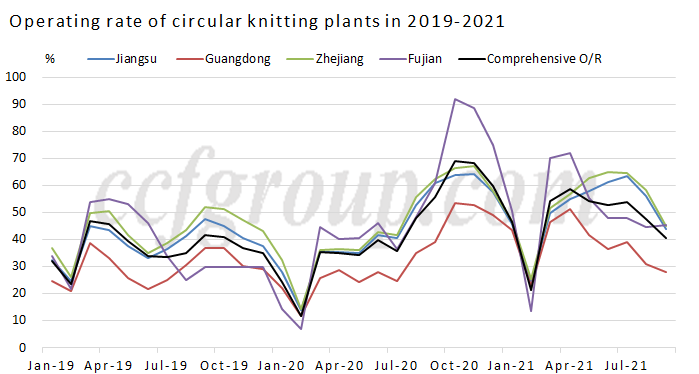
Summary
Supply of spandex is expected to slip slightly affected by the“Double Control”of energy consumption. New units are expected to gradually start operation. Overall spandex production is anticipated to gradually ascend in Q4. Downstream buyers turn to focus on digesting spandex prepared before and are inactive in hoarding up finished goods. Overall demand for spandex is likely to sustain plain as fabric plants see scant orders, meager profit and tight capital. Supply of spandex may shrink more than demand amid the“Double Control”. The seasonal orders change and the startup of new units should be concerned later.